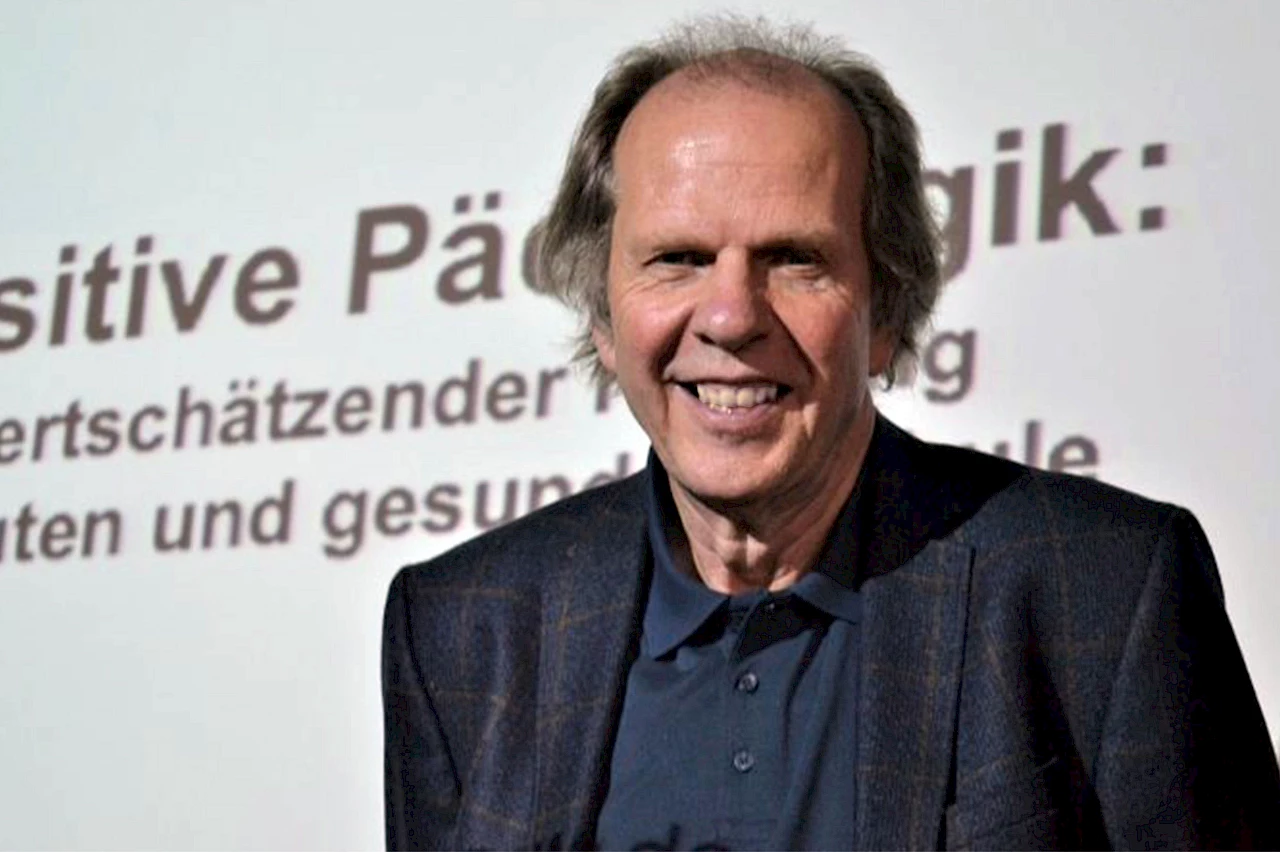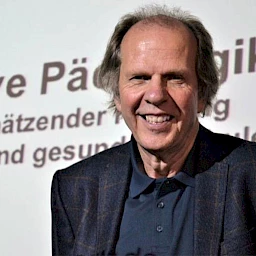The hype surrounding ChatGPT is having an impact not only on the world of work but also beyond it. AI will lead to disruptive changes in schools as well. A talk with Professor Olaf-Axel Burow about the game changer AI.
Professor Burow, is artificial intelligence setting off a revolution in the field of education?
Artificial intelligence will have a huge impact on the field of education. The smartphone triggered the first revolution, and AI is following in its footsteps. A rapid technological transformation is taking place at the moment, and it’s encountering an educational system that is relatively rigid and has little flexibility. However, this development is happening via the students, because millions of them are now using artificial intelligence, and that will put pressure on the educational system. That’s why in the future we will have to change the way we learn. The way we’ve organized schools is consistent with the model of industrialism: assembly-line teaching, with the same thing at the same time for everyone. But this model has outlived its usefulness. We need to develop learning systems that rely not on instruction alone but on the process of learning. In the future we will probably have more self-directed learning processes that are supported by digital systems. We’ll also have teachers that are no longer school-based bureaucrats. Instead, they’ll coach students, offer them advice about learning, and develop creative instructional materials. Through the use of digital intelligence, teachers will finally be able to do the things they are actually responsible for: building relationships, giving advice and support, and recognizing talents and inclinations.
What kind of benefit do ChatGPT and similar systems offer at school?
If AI tools are used in a good way, they relieve teachers and students from routine activities and reinforce students’ independent activity by means of digital assistants — which will probably be Chatbots in the medium term. These digital assistants know where the individual student’s strengths and weaknesses lie and give support, offer tips and pose challenges. Of course it will become important to introduce regulation so that all of this is transparent and controlled. That’s because at the moment these systems belong to private companies that are not controlled and that feed their own interests into the AI. Provided that this regulation is successful and the processes are supported effectively by data technology, I see huge opportunities in the area of AI tools for schools and other educational institutions.
How will learning take place in the future?
Learning will be much more personalized and oriented toward the learner’s inclinations. It will take place at the learner’s own pace, and it will be much more internally differentiated and self-determined. We will also have to let go of the idea that everyone has to do the same thing at the same time. I also believe that centralized exams have to be changed. Of course we need an examination regarding basic skills, but we have to reduce the amount of material to be learned, because we’re obviously surrounded by knowledge. If I have a question, I enter a search command, and thanks to the new systems I immediately receive a complex answer. However, when you do that you have to be able to critically evaluate what kind of source this answer is coming from and how reliable it is. Aspects like these will become much more important. By contrast, learning information by heart and simply reproducing knowledge will become less significant. Overall, there will be a stronger push toward creativity in this area.
What kind of skills do we need in order to deal with the challenges posed by AI?
In addition to safeguarding basic skills, we have to promote individual profiles of talents and inclinations much more strongly. In the future, every school leaver should receive a portfolio of talents and inclinations where his or her incomparable specific qualities and uniqueness are clearly indicated. Individual uniqueness is the particular quality that defines human beings, and it’s good to have this kind of diversity. The German sociologist and cultural scientist Stefan Reckwitz once said that “since the 1970s we’ve been seeing a transition from industrial capitalism to cultural capitalism. In industrial capitalism it was all about mass production of the same things for everyone at the same time. In cultural capitalism it’s all about uniqueness.” In other words, today if you can do something that everyone can do, you’re not interesting. You need to be able to do something extraordinary. And the digital systems will help us have more free time and relieve us from routines so that we can pursue activities that are really important — that is, learning and creativity that are personally meaningful. But this doesn’t mean we’ll only be sitting behind flat-screen displays. There will be more self-oriented learning supported by digital media, as well as learning through experience in physical spaces where people are learning together.
“If you create a respectful, appreciative work culture and design attractive environments in positive ways, the system regulates itself.” Prof. Burow






